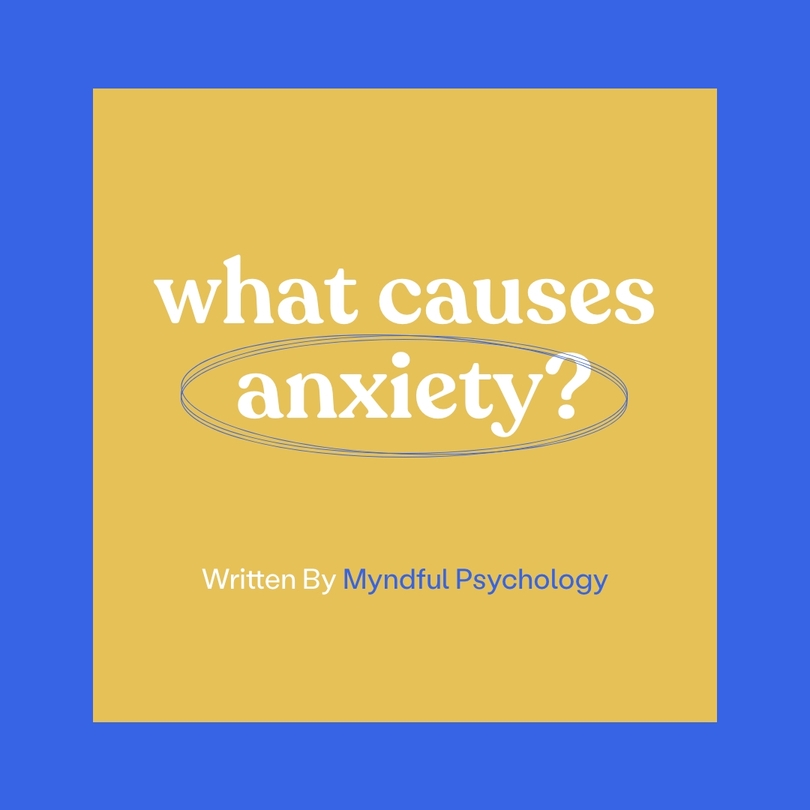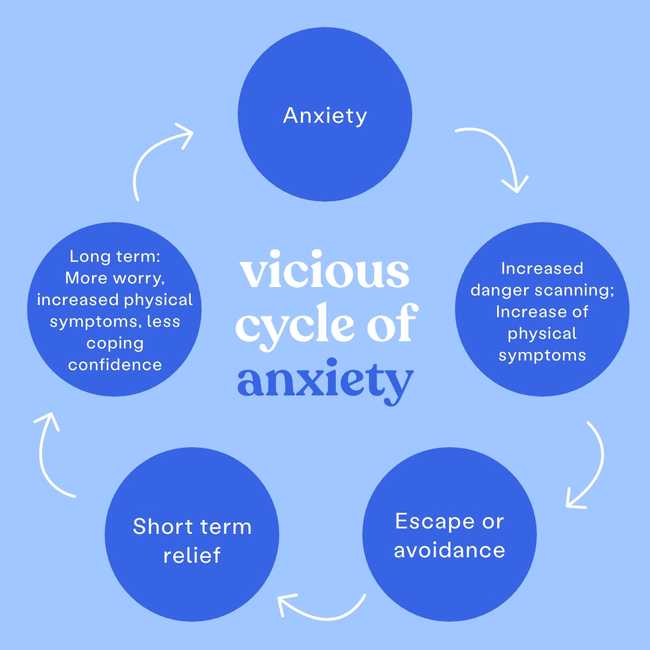What causes Anxiety
Anxiety can be caused by a range of different factors from biological and genetic to psychological and social. In part two of our series on anxiety we explore some of these factors and how they can surface.

Dr Aneta Kotevski
September 30, 2022
5 min read
#anxiety

This article continues our series on anxiety. In this article we explore some of the different causes of anxiety.
Understanding the triggers
How do we get to a state where our anxiety is above normal levels and what causes this? The real answer is that the exact causes are difficult to know, however several scientific studies have given us good insights into what may be contributing factors. These factors are different from person to person.
Psychologists often refer to the biopsychosocial model to help understand what factors place a person at increased risk of developing anxiety compared to others. These include biological, psychological, and social factors across a person's lifetime.
Biological
A person with a family member who has been previously diagnosed with anxiety has a higher probability of developing anxiety themselves, at some point in their lifetime. Scientific studies have shown genetic factors may play a role in experiencing anxiety.
For example, Generalised Anxiety Disorder (GAD) is a psychological condition that can be inherited from one or both parents, with a risk of inheriting being approximately 30% [1]. GAD is also related to other anxiety disorders such as childhood separation anxiety, social phobia, and panic in early childhood [1].
Although the chance of inheriting is high, psychological factors also significantly contribute to anxiety.
Psychological
How we view the world has a major impact on how we experience it. When we feel anxious about something, our thinking about it is couched in previous situations that had negative outcomes. Our thinking can also be influenced by present day stressors and worries about future situations that haven't yet occurred.
Social
Our social environmental can lead to increased anxiety. A dysfunctional or negative family environment is a common cause for anxiety. Poor work/life balance or an unhealthy workplace where we are placed under unreasonable pressure, or we do not feel psychologically safe can lead to anxiety. Socioeconomic status and struggles with money can also be a common cause for anxiety.
Childhood
Our tendency towards anxious thoughts and feelings, in the most chronic form, can stem from early childhood experiences which impacted us negatively. This can be a result of trauma, neglect, or abuse. When these situations and feelings are not addressed, they can leave significant pain that lingers and resurfaces again in the future.
A child's connection with their parents and caregivers develops in the first years of life. It is essential that this be a positive connection that the child can trust and rely on. A factor common to most anxious children is the inability rely on a parent as being a secure base and safe haven. This impacts the child's ability to experience the world with all its challenges in a positive way.
Children may view their caregivers as unavailable or inaccessible, they will not reach out when they need support [2].
This creates a pattern of learned responses and can lead to the child developing emotional and social difficulties (e.g., interactions with peers).
This can increase their chance of developing anxiety in later life.
Anxiety can develop at any stage of life
Anxiety can develop at any time. Sometimes it develops without a known cause or sometimes in reaction to one or many adverse life events. These life events may have occurred recently, or many years in the past.
When anxiety occurs, our response is to go into a kind of self-defence mode where we are on heightened lookout for potential threat or danger. This then activates a number of physiological, emotional and behavioural responses, which we covered in part 1.
Avoiding it can make it worse
In the short term, we experience relief by escaping or avoiding the threat. But in the long term this avoidance only causes more anxiety.
This is known as the vicious cycle of anxiety [3].
As discussed in part 1 of this series, our own biological responses can also contribute to this cyclic effect.

For example, someone with social anxiety who fears going to social events, such as birthday parties, may feel significant emotional distress if they are invited to a party. They may be concerned they will do or say something embarrassing or humiliating in front of others, who will then in turn think badly of them.
A person may feel short term relief by avoiding these events. You can think of this avoidance as a safety behaviour. However, by always going to their safety behaviour, a person can never learn to properly process uncomfortable emotions and unhelpful thoughts about social situations. As this avoidance is repeated over time, the anxiety experienced at each invitation to a social event can increase.
This is known as a Social Anxiety Disorder, which we discuss in more detail in the next article in this series.
How can this cycle be broken? With professional therapy, and by gradually increasing exposure to social situations in a healthy way, a person can become adept at processing their emotions and be able to participate in, and eventually master and enjoy social situations with confidence.
How can Myndful help you?
If some of the situations covered in this article sound familiar to you, or someone close to you, we can help you. Therapy with a qualified psychologist can help you to develop healthy responses to these feelings.
Developing healthy responses is an important step on the path to freeing yourself from chronic anxiety. Anxiety doesn't need to rule your life.
Up next
In the next part of this Anxiety series, we explore some of the types of anxiety.
Later in the series we will talk about how anxiety can be treated with therapy. It's important to know that anxiety is treatable. The right therapy from a qualified psychologist can help you recognise when you are suffering from anxiety and how to navigate your way out of it.
Aneta is a registered and endorsed clinical and health psychologist and AHPRA board approved supervisor in clinical and health psychology. She is also a member of the EMDR Association of Australia.